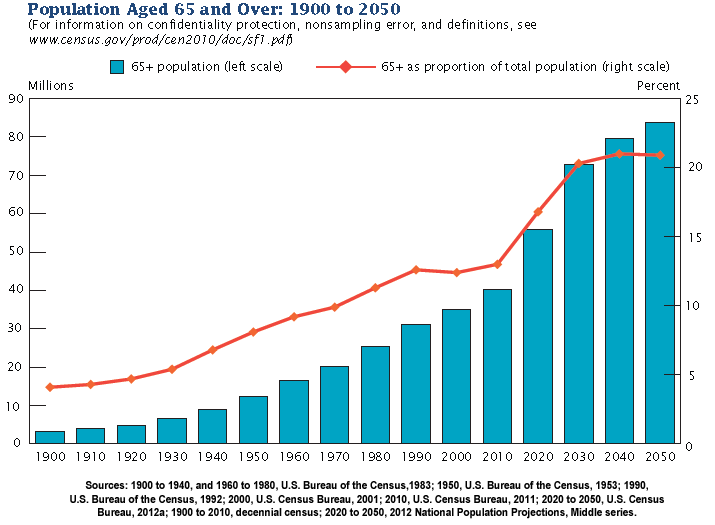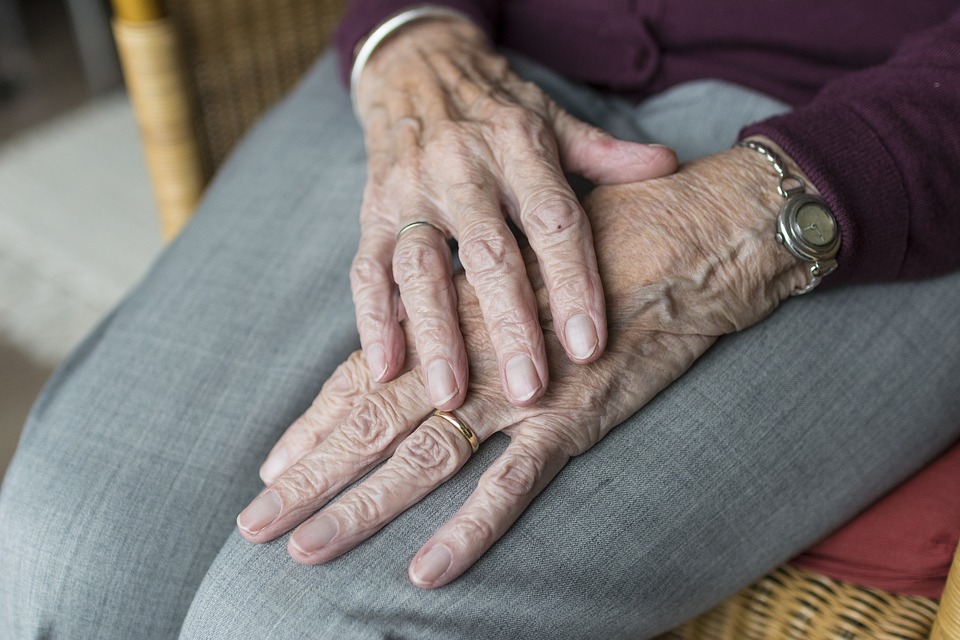Loss of Appetite among the Elderly: How to Improve?
Worldwide, people are living longer. With the advancement of medical technology, people in this era are expected to live into their sixties and beyond. By 2050, China alone will have as many as 2 billion people in this age group, compared to about 120 million in the rest of the world. Today, 125 million people are aged 80 years old and older, worldwide.

While in Malaysia, the number of Malaysians aged 60 years and above is estimated to be 1.4 million and is projected to increase to 3.3 million in the year 2020. The percentage of the population that is 60 years of age or older has also increased over the years: 5.2% in 1970, 5.7% in 1990, and 6.3% in 2000. In the year 2020, this percentage is expected to be 9.8% of the population. Between 1990 and 2020, the population of Malaysia is expected to increase from 18.4 million to 33.3 million, an increase of 80%. The aged population, however, is expected to increase from 1.05 million in 1990 to 3.26 million over the same period, an increase of 210% (2).

The population is ageing at a much faster rate than in the past. All countries face significant challenges in ensuring that people's health and social systems are prepared for this demographic shift. The healthcare system and technology must keep up with people's health and needs (1,2).
Many more literatures on the topic of geriatric (elderly) health must be discussed. According to research, the elderly face issues such as frailty, which is frequently exacerbated by issues such as urinary incontinence, instability, falls, and acute confusion states. Furthermore, as people get older, they are more likely to develop chronic diseases (2).
All these issues contribute to elderly malnutrition; in addition, poor dentition, changes in dietary habits, and the types of food available all play important roles in this situation. Thus, if you have an elderly person with a poor appetite, make sure to rule out all physical issues before attempting to improve the elderly person's appetite (2,3).

Ways to stimulate the elderly's appetite as a carer or ways for the elderly to try it themselves (3,4):
- Share a meal with your loved one or encourage them to join others for a weekly lunch or dinner. According to studies, seniors who eat with others eat more and make healthier food choices.
- Keep in mind that your loved one's preferences may change. Make nutritious meals that are bright and colourful, as well as high in vitamins and minerals. However, do not overburden your loved ones with large portions, as a plate piled high with food may overwhelm them and discourage them from eating at all.
- Eating meals on a set schedule makes it a routine part of your loved one's day. Every day of the week, breakfast, lunch, dinner, and snacks should be served at the same time.
- Serve higher-nutrient foods in smaller portions. When they see a large amount of food in front of them, some seniors become overwhelmed. Serve smaller portions instead of a large plate. You could even implement a daily routine in which your senior consumes 5 small meals rather than 3 larger ones.
- You can still cook in larger batches to save time. Simply store it in smaller individual containers to make it easier to reheat.
- Put down your utensils. The frustration of not being able to use a spoon, fork, or knife may cause some elderly people to refuse to eat at all. Serve foods that can be eaten without utensils to make eating easier for them.
- Have plenty of easy-to-eat snacks on hand. Some seniors would rather graze throughout the day than eat full meals. That is also acceptable. Make sure you have plenty of healthy, delicious, and easy-to-eat snacks on hand.
- Whip up some milkshakes or smoothies. Consider serving more liquid-y foods if chewing is difficult or tiring, even with small pieces of food. You can also try making this liquid diet with different fruits and vegetables. Do not be concerned about fat or cholesterol unless your elderly relative has specific health issues. After all, the challenge is to get enough calories into them.
- Consumption of complete milk formula such as Nutrasure and multivitamins such as Ginviton can help bridge the gap between poor food consumption/highly nutritious food and their health needs!
- Keep track of what works for you. Take notes so you can remember what foods your senior likes, what they don't, and what might be bothering their stomach. You can also observe when they are more willing to eat or when they have a stronger appetite. Keeping track allows you to experiment more with what works and avoid what doesn't.
References
1. World Health Organization (WHO). Key Facts. Ageing and Health. https://www.who.int/news-room/fact-sheets/detail/ageing-and-health
2. Mafauzy M. (2000). The Problems and Challenges of the Ageing Population in Malaysia. The Malaysian Journal of Medical Sciences. https://www.ncbi.nlm.nih.gov/pmc/articles/PMC3406209/
3. American Senior Communities. Is Loss of Appetite in Elderly is the Sign of Something Else? https://www.asccare.com/loss-appetite-elderly-sign-something-else/
4. Daily Caring. 6 Ways for Seniors with No Appetite to Eat. https://dailycaring.com/6-ways-to-get-seniors-with-no-appetite-to-eat/




